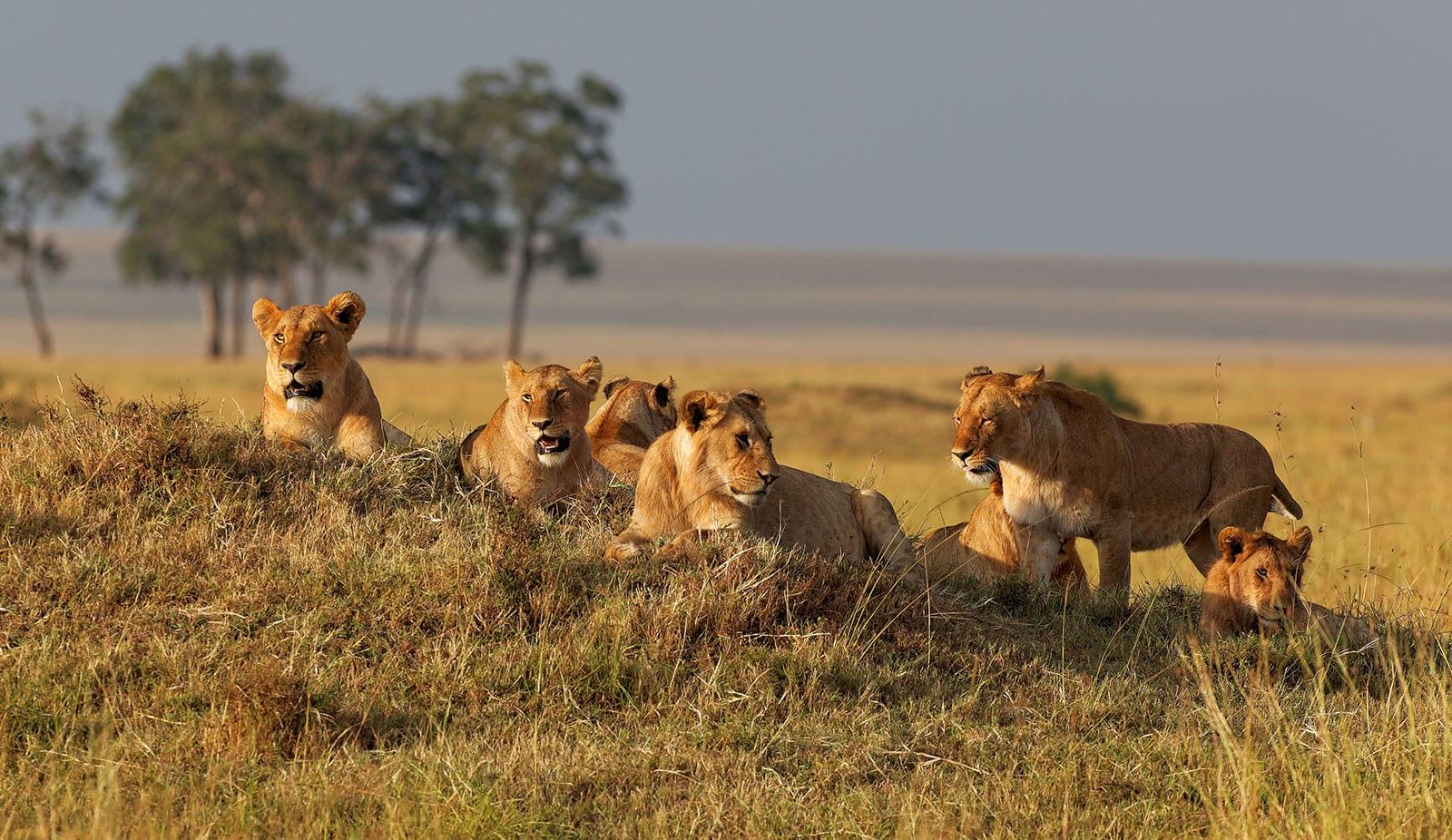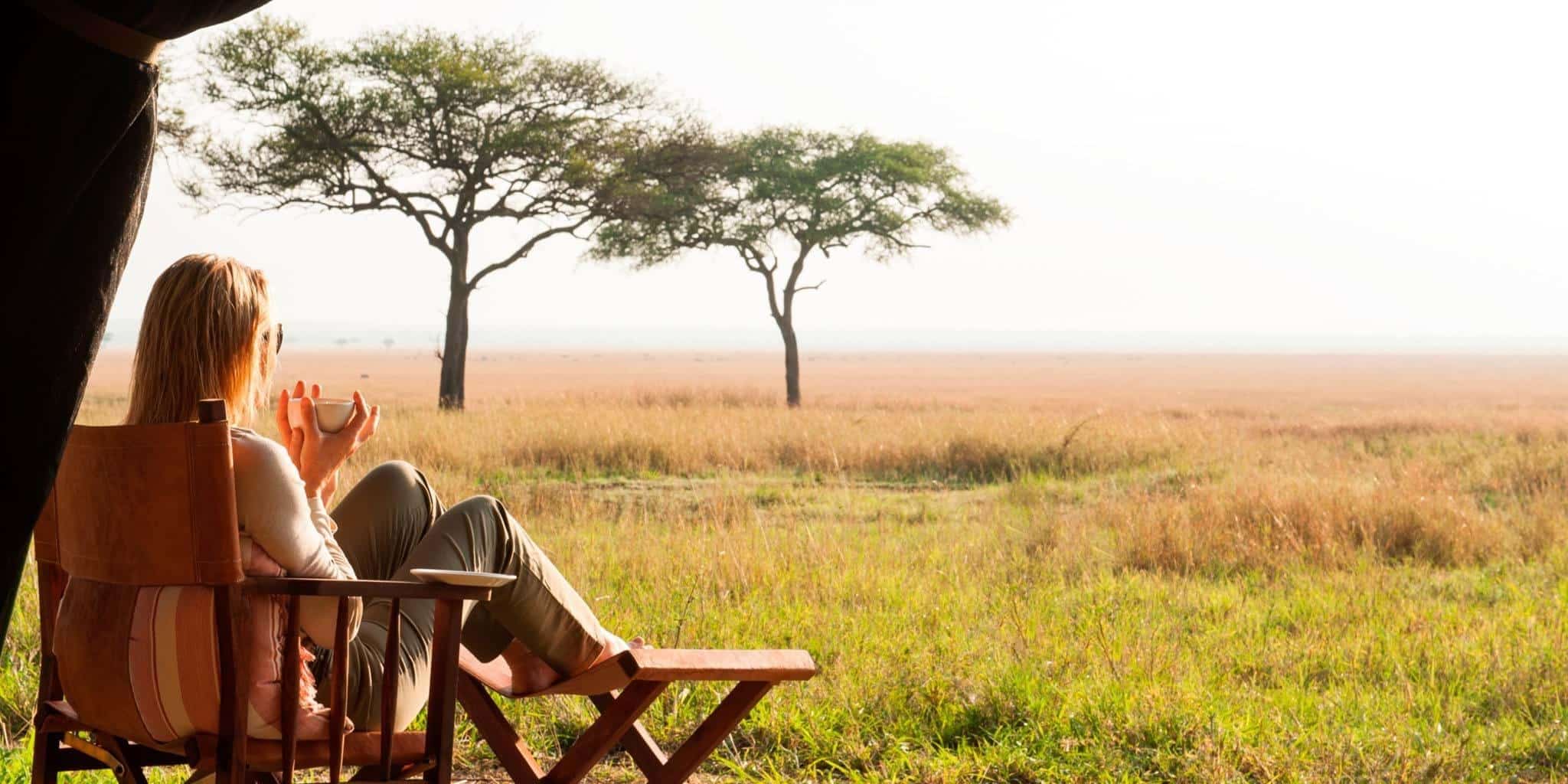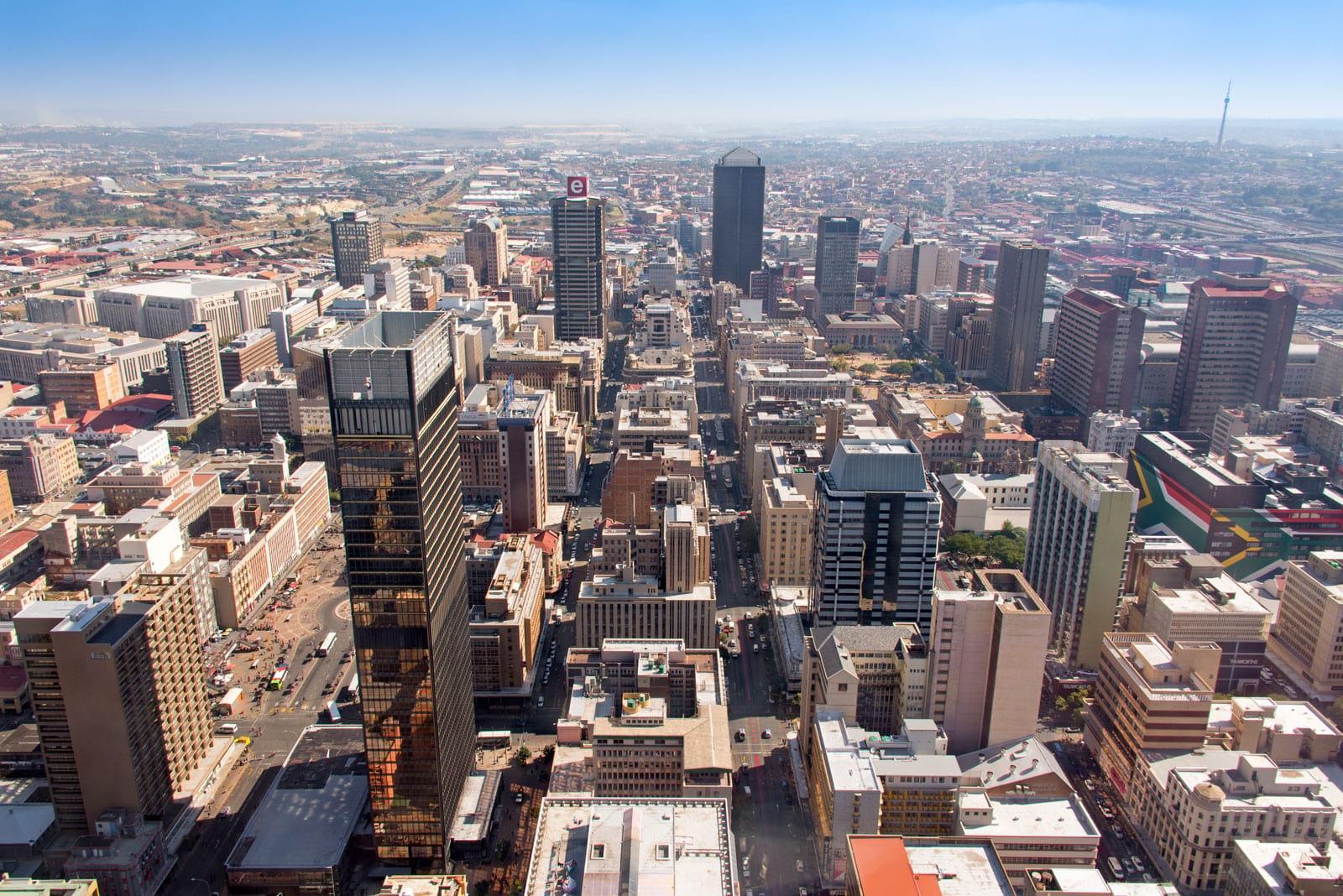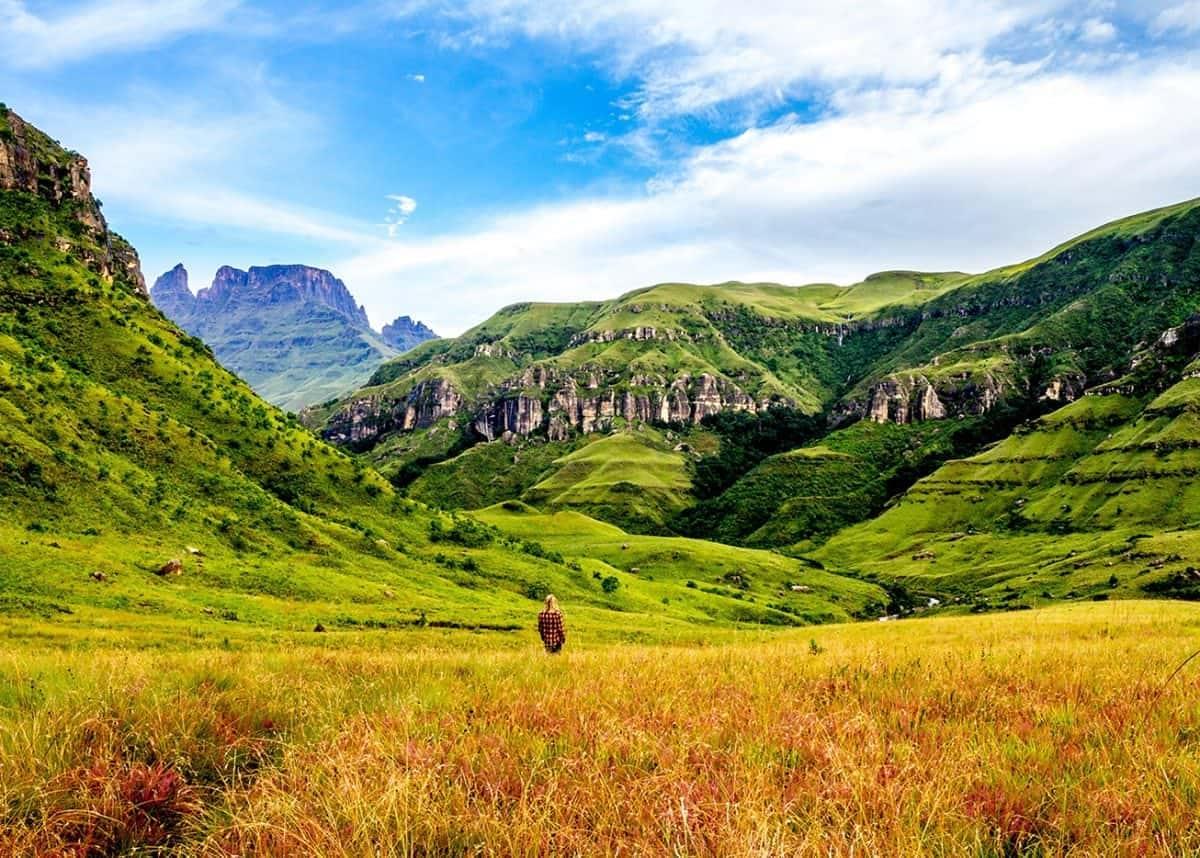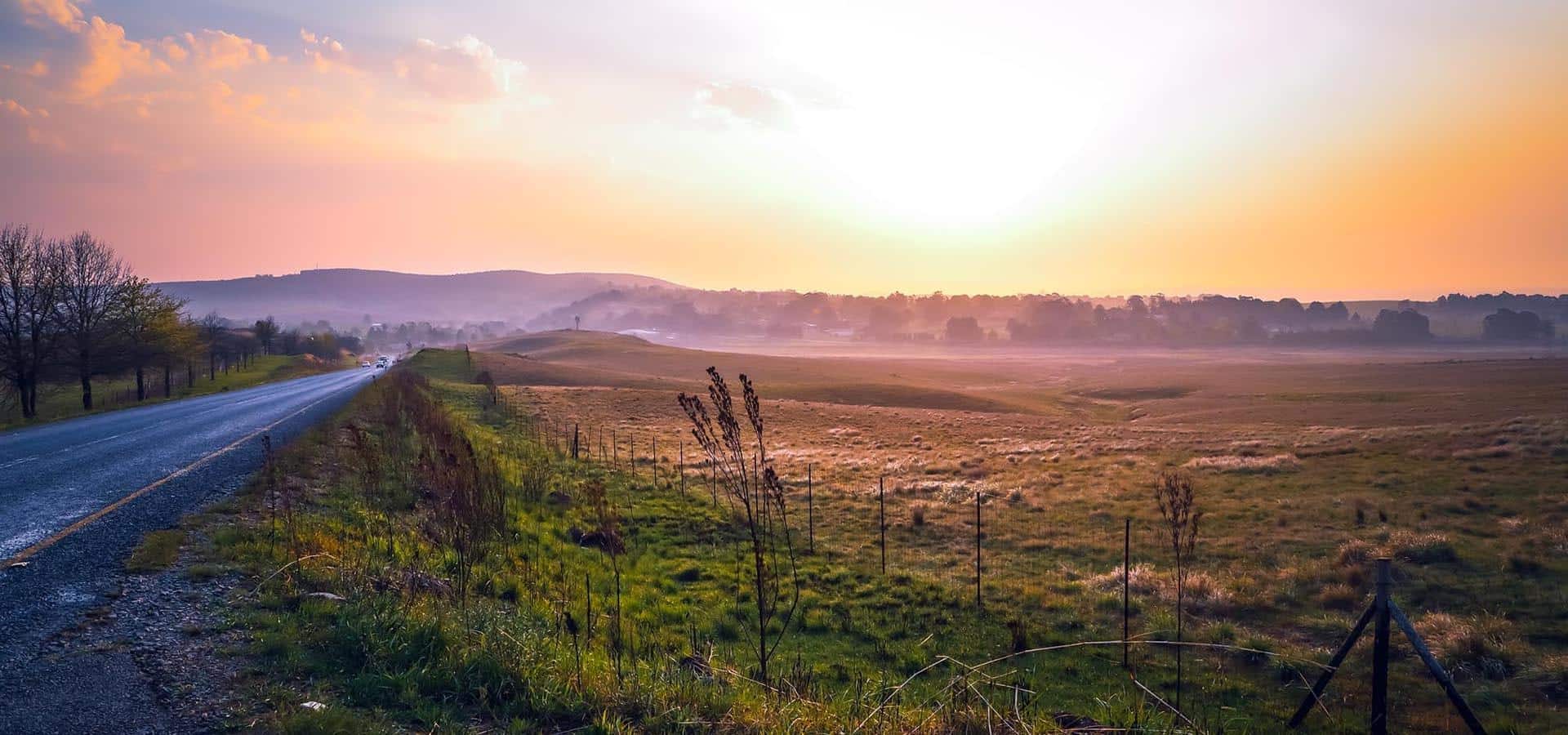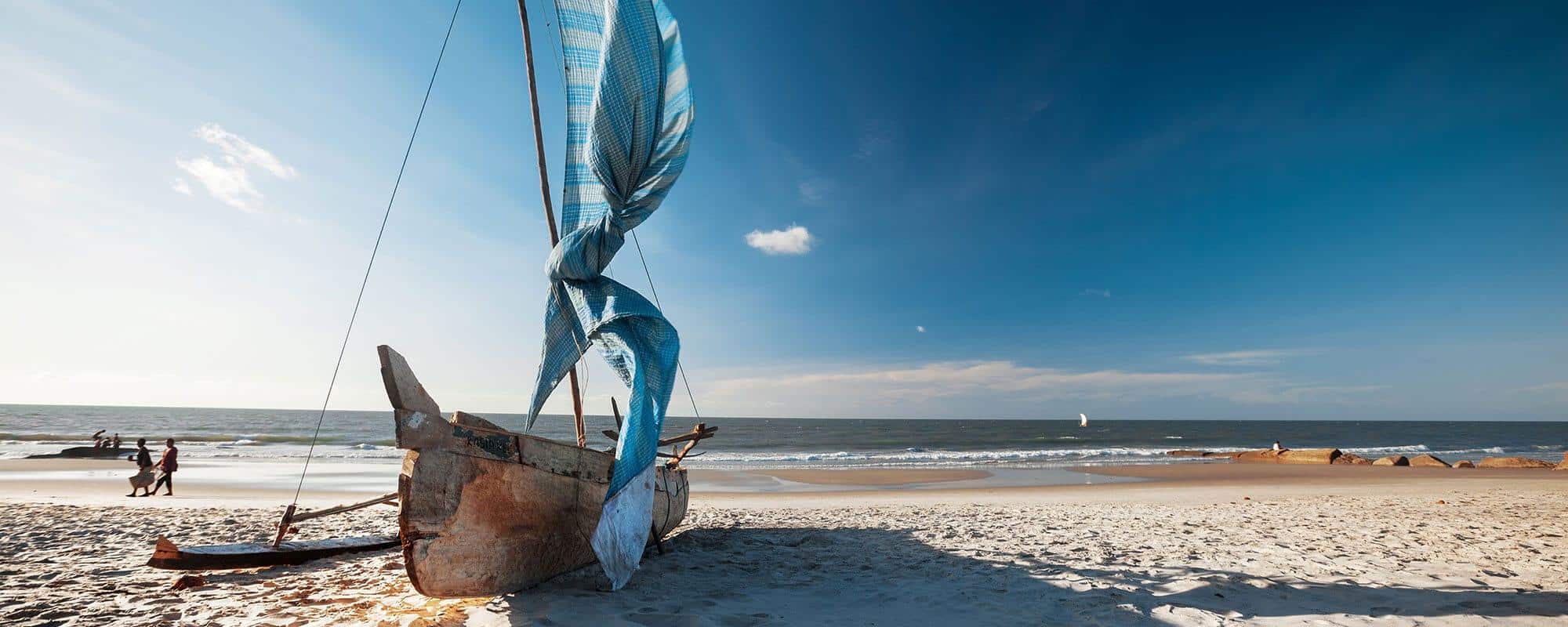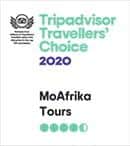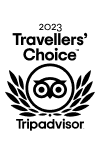4 Day Ultimate Budget Kruger Park Safari
- 4 Days
From
3-Day Ultra Budget Dumela Tented Camp
- 3 Days
From
5 Day Kruger Glamping Budget Adventure
- 5 Days
From
2 Day Ultimate Budget Kruger Safari
- 2 Days
From
4 Day Kruger Budget Tented Safari
- 4 Days
From
3 Day Kruger Classic Camping Safari Tour
- 3 Days
From
Is it Safe to Visit Kruger National Park?
A safari tour of Kruger Park is safe as long as you abide by the rules and regulations of the national park. They’re put in place not only for your safety but to protect the Park’s incredible natural resources. Remember, you are in a wilderness area with wild animals and reptiles.
To stay safe in Kruger Park is just a case of using common sense and being careful to stay out of harm’s way. Most things that end badly in Kruger Park is the result of irresponsible behaviour by visitors.
View all Kruger Park Safaris here.
Tourism is the lifeblood of Kruger Park and the safety of visitors is a priority for both SANParks and Kruger tour operators. Even though national parks in South Africa are the property of the government, much of their funding comes from tourism. In many cases, bad news you read about in the newspapers about dangerous or tragic incidences in Kruger Park are caused by people being negligent or irresponsible.
Kruger Park has rules and regulations in place to keep you safe but it’s your responsibility to follow them and behave appropriately.
Rules and regulations of Kruger Park
Fines are imposed for visitors who break the rules and in some cases, people have been banned from Kruger Park for bad behavior. This includes speeding in Kruger Park and injuring or killing a wild animal.
For more information on the Rules and Regulations of national parks in South Africa, consult the official website for SANParks.
You’ll find the SANParks Code of Conduct and an audio version of the Kruger rules and regulations in the Question & Answer section under Kruger Park.
Safe places to stay in Kruger Park
The main rest camps in Kruger Park are safe because they are fenced and patrolled by Park guards. Back in the camp after a lovely morning or afternoon game drive, there’s lots of space for children to play in safely and for leisurely walks birdwatching or game viewing.
The fences around the main rest camps are electrified which keeps out big cats with big teeth. The gates stay open during the day so you’ll find small antelope like impala and bushbuck will wonder in to graze on the greener camp grass.
Adventure travelers with a yearning to escape to remote areas of Kruger Park favor the bush camps and tented camps that are far off the beaten track and devoid of safari tourists. These camps are not fenced which makes them fantastic for a more authentic safari experience but not ideal for families with young children.
7 safety tips for Kruger Park rest camps
- Baboons and monkeys are probably the biggest nuisance on a self-catering holiday in Kruger. Their quirky antics are fun to watch but leave them alone and never feed them. Baboons in particular, will give you a nasty bite. On the rare chance you are bitten by a baboon or monkey, you need to seek immediate medical assistance because of the risk of contracting the B virus.
If you’re camping or staying in a self-catering accommodation in Kruger, don’t leave food or drinks out on the patio tables because the monkeys will grab whatever yummy things they see. Lock your bungalow door and close the windows before you leave your unit. Monkeys are known to steal clothes and hats from the patios so put things out of sight in your bungalow when you can.
- Hyenas are attracted by the smell of cooked meat from the barbeques in the rest camps and often come up close to the fences after dark to see what they can scavenge. Never feed them and keep your distance from the fence.
- Wear sneakers or sandals – or what South Africans call slip-slops – when walking around the rest camps. Many of the lovely trees in the rest camps drop sharp thorns which are very sore to stand on and may become infected if not treated properly.
- Look down when you’re walking on the paths or across the grass for snakes. It’s rare that visitors encounter highly-venomous snakes in the rest camps because they tend to shy away from the noise but something like a coiled python sunning its self on a sandy patch is dangerous because they’re well camouflaged and difficult to see.
- Only light fires in the designated braai (BBQ) areas in the rest camps. The accommodation in Kruger Park is geared for self-catering holidays and each unit has its own outside barbeque facilities. There are also barbeque facilities in the designated day visitor sites in the main rest camps.
It’s a good idea to buy anti-burn lotion for a Kruger Park safari holiday. In South Africa, a popular brand is Burnshield. It’s the best lotion to use to treat burns if someone gets too close to the barbeque or pit fire.
- Keep an eye on young children at all times. Playing in front of your bungalow is safe but don’t let them wander off too far from sight. The rest camps have large swimming pools and not all of them are fenced. Make sure your children (and adults) know they must not feed, touch or chase the small animals and monkeys in the rest camps.
Warthogs and bushbuck love grazing in the rest camps but don’t get too close to them because they’ve got pointy tusks and horns. One vicious nudge from a warthog or bushbuck could seriously hurt a young child.
Children must also know the fences are electrified and they’ll get a big shock if they touch them.
- Avoid bringing valuables like expensive jewelry and computer equipment on a Kruger Park safari. If you do, lock your valuables in the safe if one is provided or in the boot of your car. Theft and robberies in Kruger Park are rarely experienced but it’s better to keep temptation out the way.
Malaria in Kruger Park
Kruger Park is located in a malaria area in South Africa. Malaria is a life-threatening disease caused by a bite from a malaria-carrying mosquito. It’s highly recommended your whole group of family and friends take anti-malaria tablets for a holiday to Kruger Park as well as take the usual precautions to prevent being bitten.
Southern and central Kruger are regarded as low-to-medium risk malaria areas. Northern and far north Kruger the malaria risk is higher. Regardless of the risk profile, take all sections of the Kruger Park seriously when it comes to malaria. If not diagnosed or treated early, malaria can be fatal.
Is it safe for young children to visit Kruger Park with malaria?
Many South Africans who visit Kruger Park over the school holidays have young children. You’ll often see mothers with newborns and toddlers in Kruger Park. It’s our advise that if you have a child who is younger than 5 years, it’s best to delay visiting Kruger Park until they’re old enough to take anti-malaria tablets and tolerate medical treatment for malaria if they get sick.
The same applies to pregnant women. It’s not safe to take malaria tablets when pregnant and the toxic treatment if you catch malaria could be seriously dangerous for your unborn baby.
Rather book a Big 5 safari tour of game reserves located in malaria-free regions. The most popular are Pilanesberg and Madikwe game reserve which are relatively close to Johannesburg and the popular Cape safari destination.
There is no malaria in Cape Town and the Garden Route and while the game reserves aren’t as big as Kruger Park, you’ll see the Big 5 and have a wonderful safari experience.
Can children take anti-malaria tablets for a Kruger Park holiday?
Medical recommendations state that children can take anti-malaria tablets if they weigh over 5 kilograms. The Travel Doctor provides the following information on the different malaria prophylactics on the market:
- Mefloquine can be given from 5kg
- Malanil can be given from 11kg
- Doxycycline should preferably only be given from 8 years
The biggest problem with travelling to malaria areas with young children is, if they do get sick with malaria, they cannot always tell you they’re sick and precious time is wasted before you realise the child is indeed ill and in need of urgent medical treatment. Young sick children tend to deteriorate rapidly which is why malaria can be fatal in very young and underweight children.
The other issue with malaria and children is the treatment for malaria is often worse than the disease itself. The medication to treat malaria is highly toxic and it’s not a position you want to put young children in for the sake of a short safari holiday in Kruger. Rather book accommodation in Pilanesberg Game Reserve or any of the popular Cape safari lodges that are located in malaria-free regions in South Africa.
Disclaimer:
This information on malaria in Kruger Park is only provided as a guidance for people planning to visit Kruger Park. It does not replace the advice of a medical professional. Always speak to a doctor or professional travel clinic for advice and prescriptions for anti-malaria tablets for the whole family.
Sources for more information on malaria in Kruger Park
MMV Medicines for Malaria Venture
Keeping safe on Kruger game drives
Hundreds of thousands of visitors drive around Kruger Park every year and there have only been the rare incident when someone has been hurt. Accidents are generally linked to irresponsible behaviour of visitors, mostly speeding.
The majority of visitors enjoy self-drive holidays in Kruger. It’s nicer to travel in a 4×4 vehicle, purely because the height of the big four-wheel drives is better for game viewing. However, it’ perfectly okay to explore Kruger Park in a sedan.
The public roads in Kruger Park are tarred and well-maintained. The dirt roads that the public are allowed to go on are well graded and safe for sedans. A few sections are corrugated or washed by rain but the Kruger’s road maintenance teams are always working on the roads to keep them in ship-shape condition.
Keep to the speed limit
The most important rule of driving in Kruger Park is to keep to the speed limit. The general rules of the road apply to Kruger Park because they are public roads.
The Kruger Park speed limits are:
- 50 km/h on tar roads
- 40 km/h on gravel roads
- 20 km/h in rest camps
Plan your evening game drives carefully so you are back in time for when the rest camp gates close. Most speeding happens when visitors are late for the gate and race to get back to their rest camp.
How old must a child be to go on a game drive in Kruger Park?
Children of all ages will love exploring Kruger Park and enjoy game drives with their parents. However, as per safari regulations, children younger than 6 years are not allowed on game drives in an open safari vehicle.
The only time young children under 6 years are allowed on open vehicle game drives is on a private safari game drive where a group of family or friends has booked a safari lodge in Kruger on an exclusive use basis and at the discretion of the game ranger, the child is permitted to join the group.
10 safety tips for safe game drives in Kruger Park
- Stay in the vehicle at all times except when you’re allowed to get off for sundowners or to visit a picnic site or bird hide. Always follow your game rangers instructions and ask him/her where you can go if you need a bush pitstop.
- Don’t stand up in the vehicle, hang arms out the window or look out through the sunroof. Keep your arms tucked in; if they’re hanging off the side of a vehicle, they’ll make a tasty morsel for a predator. If you’re caught getting out of your vehicle or standing up to take photos of animals, you will be fined.
- Don’t talk or laugh too loud. Keep quiet on game drives out of respect for your fellow passengers and so you don’t startle game and birds at wildlife sightings.
- Wear neutral colours like safari beige on game drives in open safari tours. This isn’t just a safari fashion statement, it’s to avoid sticking out like a big red flag to hungry game.
- Stay close to your guide and group on a walking safari and always walk in single file. Watch where you put your feet while walking in the bush; look out for snakes, scorpions and other things with teeth and fangs.
- Stick to the speed limit. Speeding is not only dangerous for people in the other vehicles but if you hit an animal, you’ll be fined heavily.
- Stay on the designated public roads. You have the choice of the tarred main roads and gravel roads. This is required to protect the bushveld from hundreds of vehicles who travel around the Park and for your own sake. If you drive off the beaten path and break down, it’ll be difficult to find you.
- Elephants are the most dangerous animals to encounter at close range on a self-drive game drive. If you’re in an open safari vehicle with a professional ranger, you’re relatively safe because rangers won’t do anything that puts guests in a life-threatening position.
If you are in your own vehicle, stay alert if you have stopped on the road to watch a large herd of elephant. Do not get too close to elephants walking on the road and back away slowly if one is walking towards your car.
Never put your car between a mother and its calf. Take note of the elephants behaviour and if you feel a change in their behaviour which feels threatening, move off slowly or maintain a safe distance.
- Animals have right of way on the roads in Kruger Park. Slow down as you approach animals on or next to the road and allow them to cross or move off the road. Visitors who don’t respect animals and birds in Kruger Park are not welcome.
- Do not drink and drive. Many reported accidents in Kruger Park where speeding is involved and animals are hurt can be connected to drunk driving. This is a serious offence and if caught driving under the influence in Kruger, you will be fined heavily and possibly banned from the Park. Driving drunk – even tipsy – is dangerous for both your passengers and other people on the Kruger roads.
Psst… we don’t want to state the obvious but maybe we should. Make sure you have a full tank of petrol before heading out on a morning or afternoon game drive. You don’t want to run out of fuel far from the rest camp and have to call for help.
10 common tips for a safe safari holiday
- Speak to your doctor or chemist before you travel to Kruger Park for advice on medication and vaccinations that you need for South Africa. This may include a yellow fever vaccination and must definitely include advice on taking anti-malaria tablets.
- Travel with a basic first-aid kit to treat minor ailments and injuries; including ointment for burns, antihistamine cream or tablets, anti-nausea and anti-diarrhoea, plasters and bandages and after-sun spray for sunburn. There is a medical centre at Skukuza Rest Camp and basic medical provisions at the other rest camps.
- Stay hydrated by drinking lots of fresh water during the hot summer months. It’s safe to drink water in the main towns and cities of South Africa but we recommend drinking bottled water in the rural areas and game reserves.
- Pack a wide-brimmed safari hat that covers your face, ears and neck. Apply a high-factor sunscreen throughout the day, particularly after you’ve been swimming. Keep children out of the sun in the mid-day heat, particularly at the height of summer when temperatures peak in the low-40s.
- Buy a good brand of insect repellent and apply throughout the day, most especially before the sun sets and while at the barbecue outside. You can choose a spray or a lotion. Both are effective. The most popular insect repellent on sale in South Africa are Peaceful Sleep, Target and Bugger Off.
One thing you can buy for a self-catering safari holiday in Kruger is a citronella candle especially designed to keep mosquitoes at bay. Citronella oil repels mosquitoes but does not kill them, so don’t rely on it as an anti-malaria solution. The sweet-smelling oil masks the carbon dioxide and lactic acid scents that humans put out and are what mosquitoes rely on to search for someone to bite.
- Always sleep under a mosquito net if one is provided. Change into a long-sleeved shirt and long pants and wear closed shoes with socks to cover up bare skin and reduce the area where mosquitoes can bite you.
- On a self-drive holiday in Kruger Park, make sure your mobile phone is fully charged before leaving on a game drive. If you break down or need medical attention, you don’t want to be stuck in the bush with a flat phone.
- Make sure your vehicle has air-conditioning. It gets very hot in Kruger Park, even in the cooler winter months. Firstly, you want to be comfortable and cool on your daily game drives. Secondly, if you arrive at a wildlife sighting, it’s recommended you keep your windows closed. It’s unpleasant sitting at a sighting of a lion on a kill with your windows closed and sweating up a storm.
- Use the Kruger Latest Sightings app wisely. This app platform allows visitors on a Kruger safari tour to report the animals and events they are seeing on game drives in real time. Latest Sightings records the location, time and sighting which in turn, is broadcast to others on the app.
The problem Kruger Park has experienced recently with the Latest Sighting app is people behaving irresponsibly and speeding from one reported sighting to the next. If you pick up a sighting reported on Latest Sighting that’s something you really want to see, do the right thing and drive there slowly.
- Even in summer, pack a warm wind/waterproof jacket, beanie and scarf. Kruger Park experiences summer rainfall and often in the form of mighty thunderstorms. Heavy rain can arrive out of nowhere and if you’re on an open safari vehicle or outside your bungalow, you’ll get drenched. If a cold front comes through the Park, night game drives in Kruger get nippy.
Day temperatures in Kruger Park in the winter between end-April and mid-September are mild and pleasant but night temperatures can drop quite dramatically after the sun goes down. You need something warm for around the firepits for dinners under the stars so you don’t get sick and end up with a bad dose of flu on your Kruger safari holiday.
#1 Kruger Park safety recommendation
Book day and overnight tours to Kruger Park with a reputable tour operator like MoAfrika Tours. This is not a marketing line but wise advice, considering the fact that tour operators make the safety of their clients a priority.
MoAfrika Tours was founded in 2000 and has been taking visitors to Kruger Park for over 20 years. Your guides will ensure you visit safe places, advise you on what to do or not to do in the camps and on game drives and have the knowledge and experience to keep safe in Kruger Park.
Who to call if you need help on a holiday in Kruger National Park
The KNP Emergency Call Centre can be contacted on 013 735 4325.
The Emergency Call Centre is located in Skukuza Rest Camp and is manned 24/7. The call centre will provide assistance for anything from a flat tyre and running out of petrol to getting lost and a medical emergency.
Professional, trained personnel man the KNP Emergency Call Centre and qualified medical and mechanical personnel to assist. Where needed, Kruger Park officials will call law enforcement personnel from the nearest police station to assist.
The KNP Emergency Call Centre also takes calls from visitors in the Park reporting people disobeying the Kruger Park rules and regulations. This would include leaving a vehicle during an animal sighting, speeding, driving off the road, injuring or killing an animal and loud, inconsiderate behaviour in rest camps.
Emergency numbers for South Africa
To report any safety incidents, visitors can call the following numbers:
112 All emergencies from your mobile phone
107 All emergencies from a landline
10111 South African Police Service (SAPS)
10177 South African Fire & Rescue Service
What is 10111?
10111 is the police emergency number in South Africa. It’s the same as the famous 911 in America.
If you are a victim of a crime, you are witness to a serious ongoing crime or your feel your safety is threatened: call 10111.
A Flying Squad patrol vehicle will be assigned to the case and dispatched with all haste.

